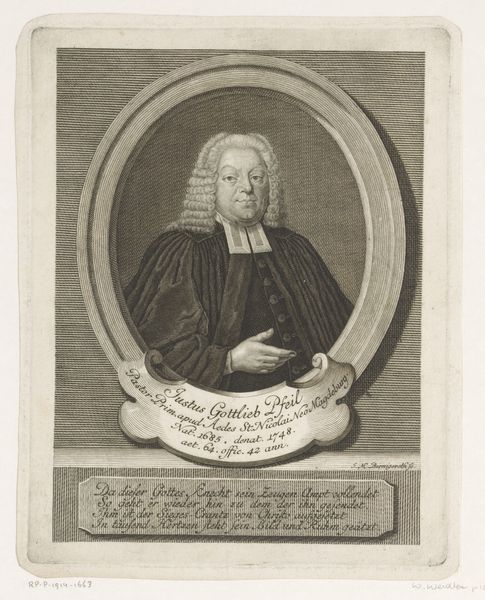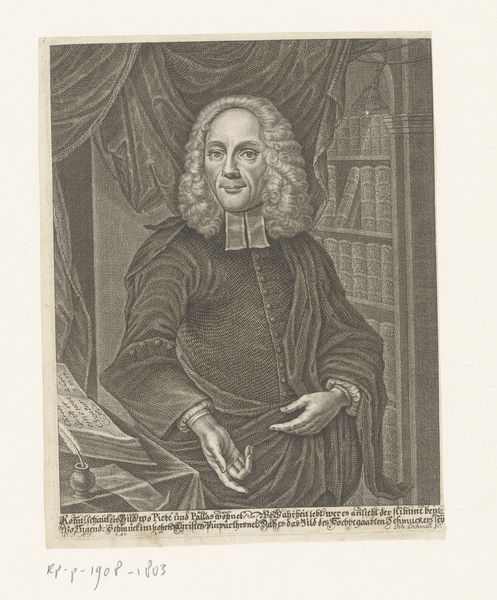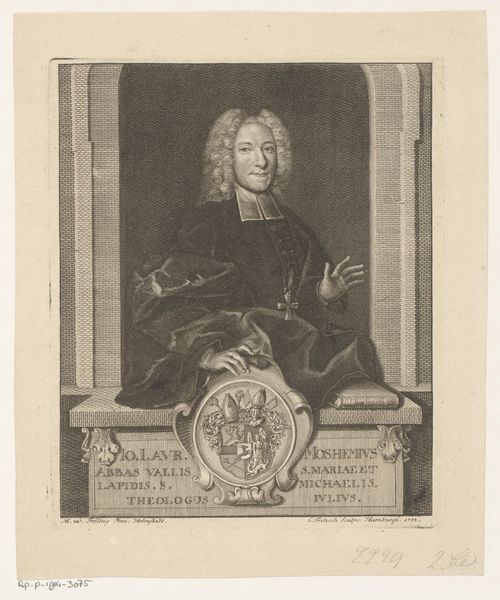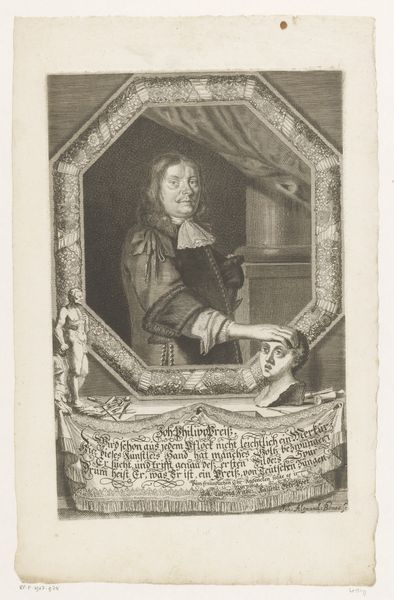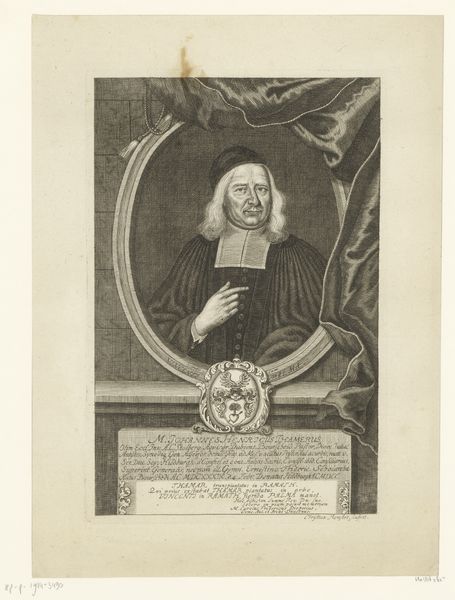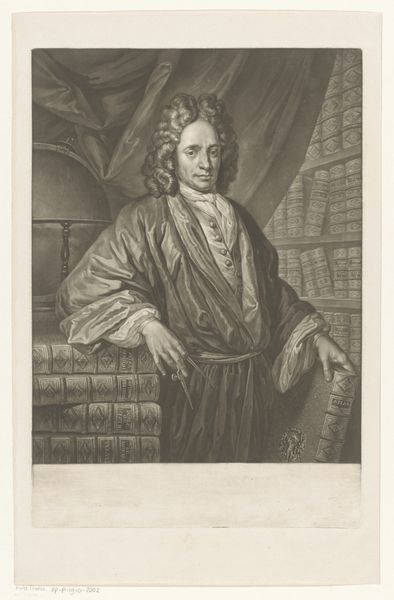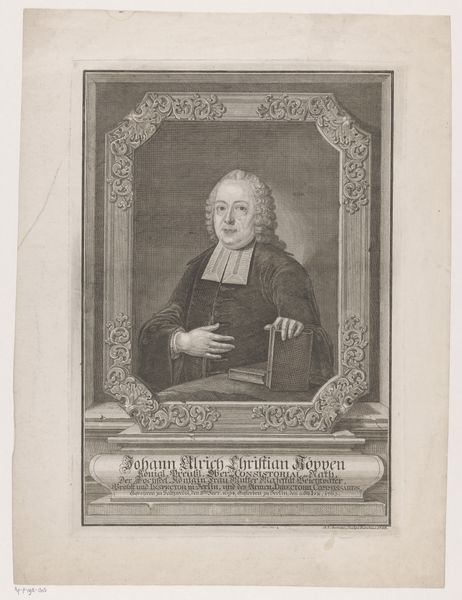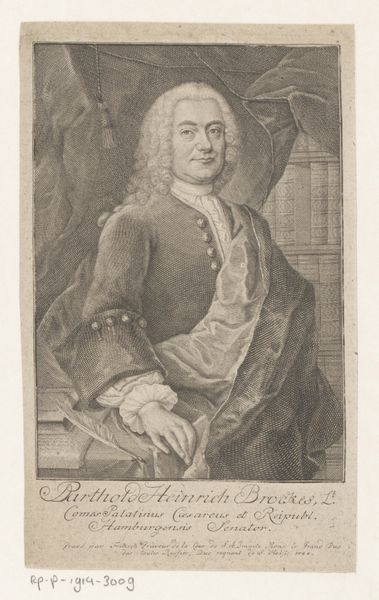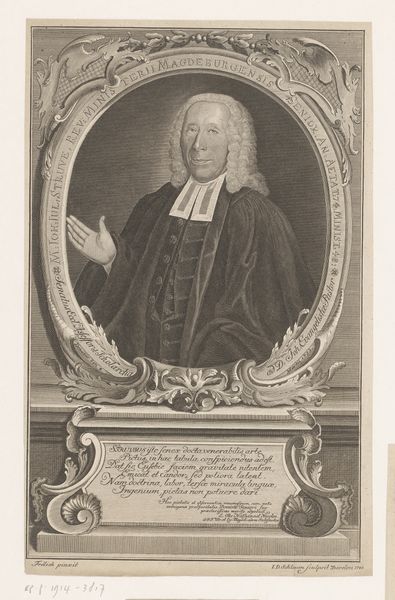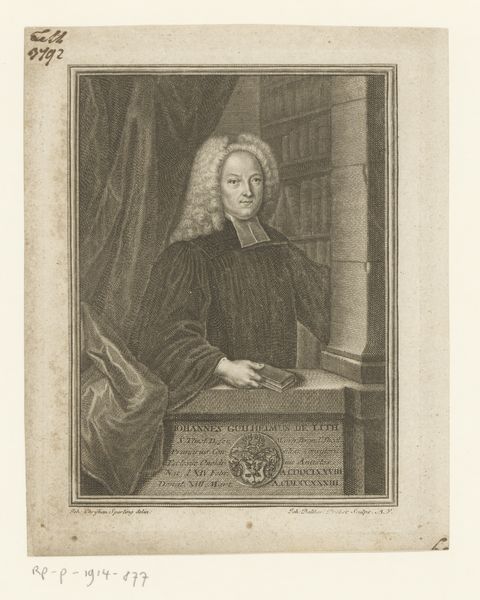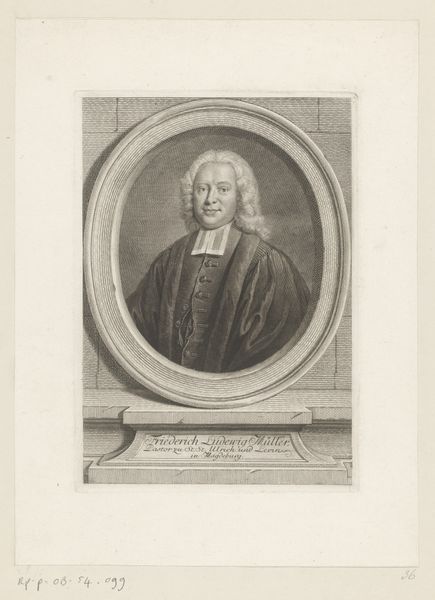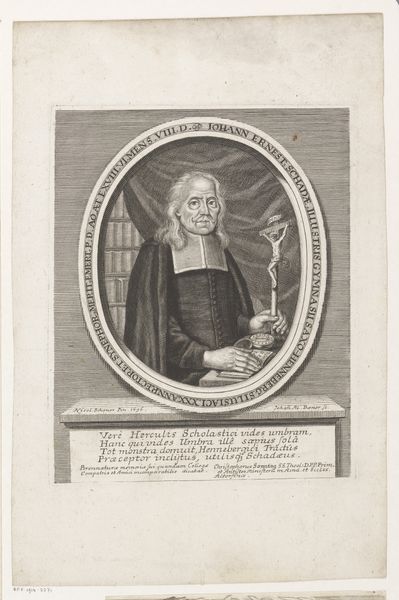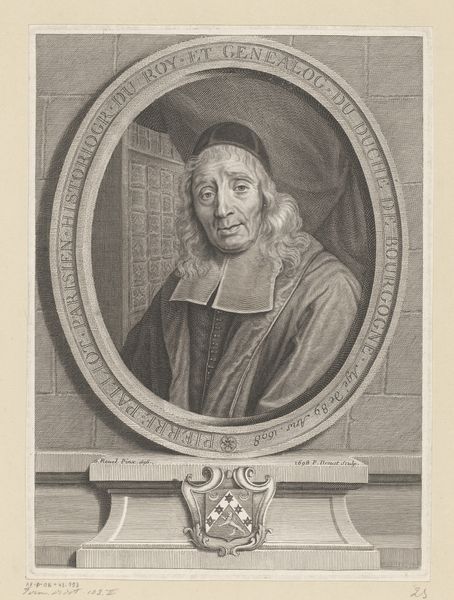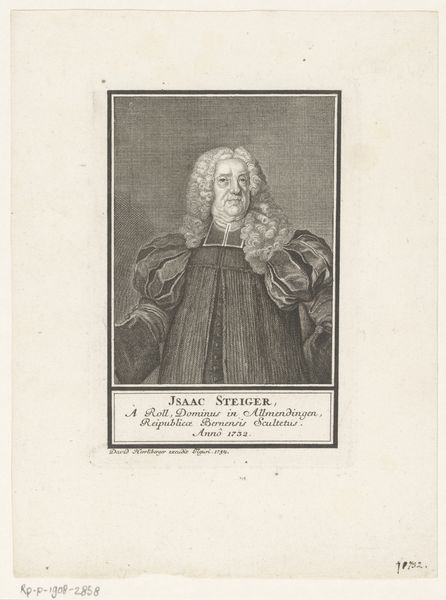
print, engraving
#
baroque
# print
#
history-painting
#
engraving
Dimensions: height 267 mm, width 185 mm
Copyright: Rijks Museum: Open Domain
Editor: Here we have Johann Alexander Böner's 1673 engraving, "Portret van Friedrich I Buchner," housed at the Rijksmuseum. It has a formal, almost severe mood, due in part to the stark contrasts of the print medium, wouldn't you say? How do you interpret this work within its historical context? Curator: This portrait, though seemingly straightforward, can be read through a lens that acknowledges the power dynamics inherent in representation, especially considering the subject's identity. Who was Friedrich Buchner? What was his position in society, and how does Böner's portrayal reinforce or challenge those structures? Consider the globe in the background – what does that signify about Buchner's world view and access? Editor: Well, looking at his attire and the globe behind him, one gets the impression of a man of power, of status… a global perspective. Curator: Exactly. But let's dig deeper. What are the social implications of commissioning a portrait like this? Who had access to such displays of power and status? And conversely, who was systematically excluded from these visual narratives? The seemingly simple act of representation can perpetuate inequalities and solidify hierarchies. The lines of the text, could they serve to elevate the subjects position? Editor: I never considered portraiture from that angle. I was focusing more on the subject, and the artist. How it must've been a challenge to capture their personality in one image. It is also history. This work makes you think about access to power and how visibility itself can be a form of privilege. Curator: Precisely. Böner's "Portret van Friedrich I Buchner" offers a fascinating glimpse into the politics of representation during the Baroque period.
Comments
No comments
Be the first to comment and join the conversation on the ultimate creative platform.
